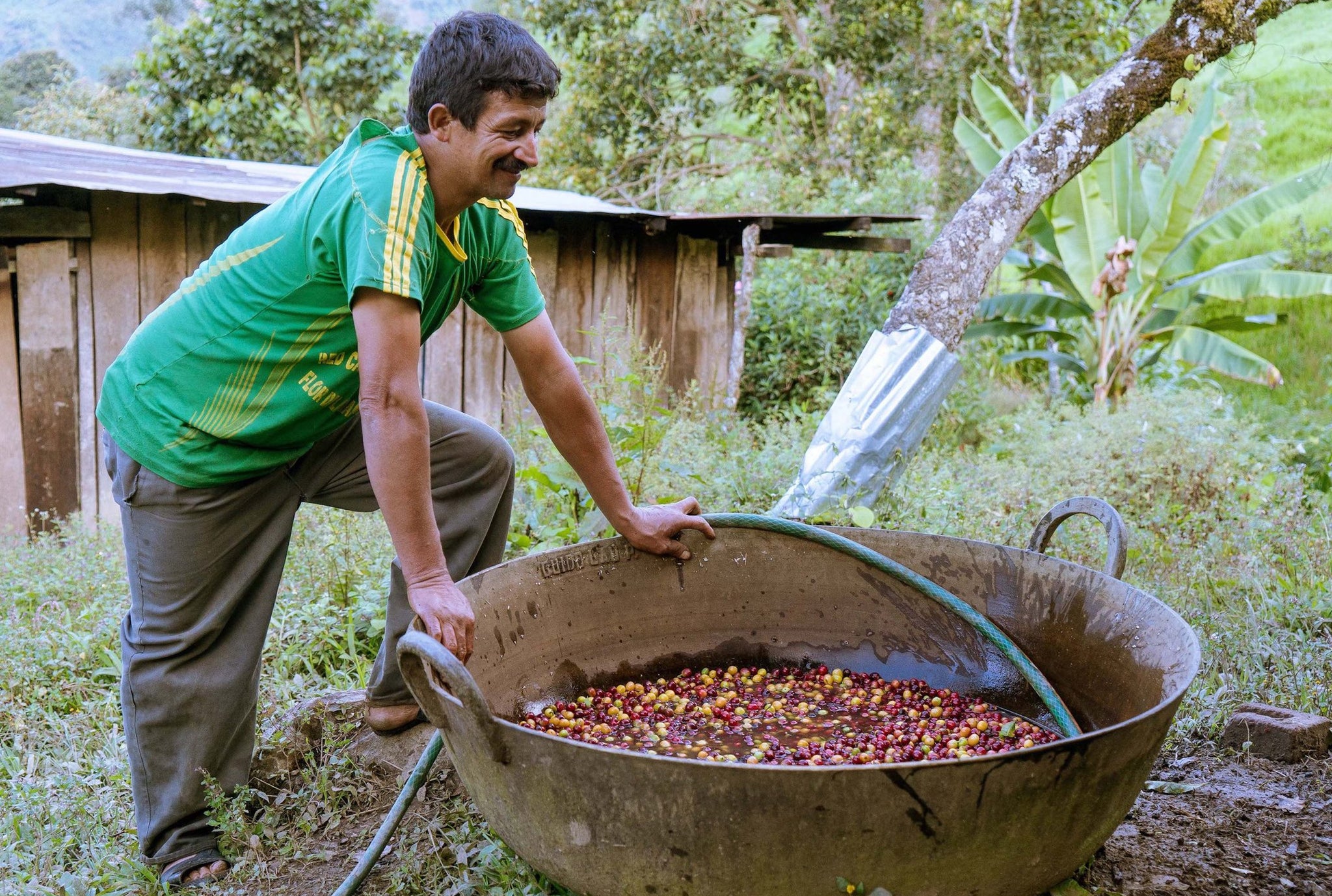
We are honored to be able to source the unique incredible coffee from Peru. It's one of our importers Aces coffees and one of the best Peru coffees that we've ever had!
Gilmer Mejia operates the beautiful Finca Ecológica Agua Colorada, a farm his father, Filadelpo Cordova Mejia, acquired for growing coffee in 1990. It is a 7-hectare plot, on which 4 hectares grow Caturra and other common varieties. Wilmer is sure to pick all his coffees ripe and by hand, as they mature under the protection of wild shade trees. He uses compost and guano to fertilize his farm, and uses no herbicides. Gilmer is a young and innovative producer who is committed to and passionate about quality in every way, from the anagement of his farm to the final taste in the cup.
Though coffee arrived in Peru relatively early—in the middle of the 1700s—it wasn’t cultivated for commercial export until nearly the 20th century, with increased demand from Europe and the significant decrease in coffee production in Indonesia. British presence and influence in the country in particular helped increase and drive exports: In the early 1900s, the British government took ownership of roughly 2 million hectares of land from the Peruvian government as payment on a defaulted loan, and much of that land became British-owned coffee plantations.
As in many Central and South American countries, as the large European-owned landholdings were sold or redistributed throughout the 20th century, the farms became smaller and more fragmented, offering independence to farmers but also limiting their access to resources and a larger commercial market. Unlike many other countries whose coffee economy is dominated by smallholders, however, Peru lacks the organization or infrastructure to provide economic or technical support to farmers—a hole that outside organizations and certifications have sought to fill. The country has a remarkable number of certified-organic coffees, as well as Fair Trade–, Rainforest Alliance–, and UTZ-certified coffees. Around 30 percent of the country’s smallholders are members of democratic co-ops, which has increased the visibility of coffees from the area, but has done little to bring incredibly high-quality lots into the spotlight.
As of the 2010s, Peru is one of the top producers of Arabica coffee, often ranked fifth in world production and export of Arabica. The remoteness of the coffee farms and the incredibly small size of the average farm has prevented much of the single-farm differentiation that has allowed for microlot development and marketing in other growing regions, but as with everything else in specialty coffee, this is changing quickly as well. The country’s lush highlands and good heirloom varieties offer the potential for growers to beat the obstacles of limited infrastructure and market access, and as production increases, we are more likely to see those types of advancements.
Tasting notes: honey, caramel, apple, fig, chocolate.
Varietal: Caturra
Process: Washed
Elevation: 1850 m
Harvest: May-October